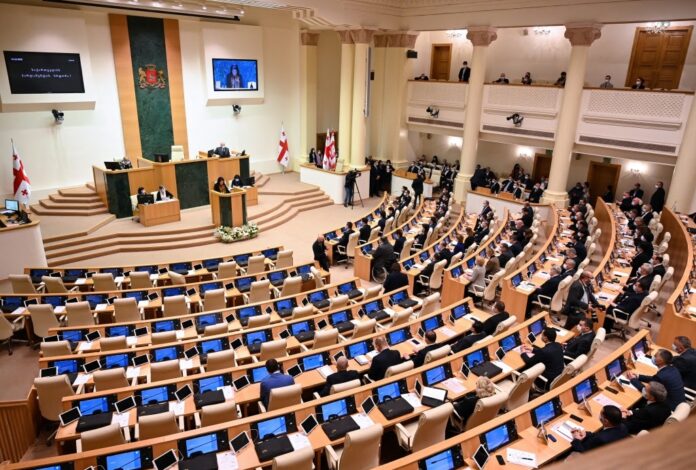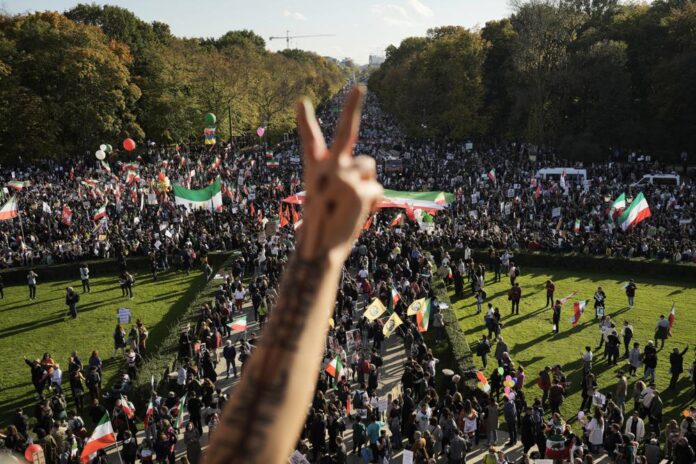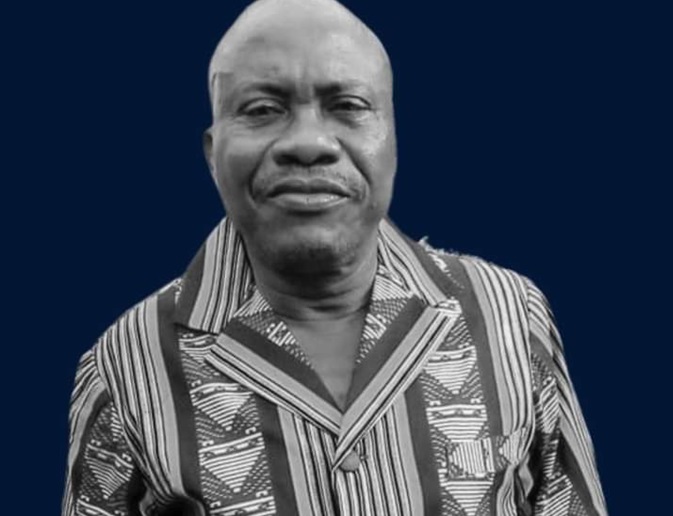STOCKHOLM – Georgian authorities should withdraw contested amendments to the country’s broadcasting law and work with stakeholders to devise a regulatory framework that enjoys broad industry support, the Committee to Protect Journalists said Friday.
In a first reading on September 20, Georgia’s parliament passed a package of amendments to the country’s broadcasting law that includes stipulations local press freedom advocates fear could be weaponized against pro-opposition TV channels. Dates for further parliamentary readings of the amendments are yet to be announced, local media advocates told CPJ.
If approved, the amendments would transfer the authority to rule on alleged broadcasting of hate speech and providing a right of reply from media self-regulation to the state regulatory body, Georgian National Communications Commission (GNCC). GNCC sanctions—fines of up to 3% of a broadcaster’s annual income and suspending broadcast operations—also would be enforceable immediately rather than after exhausting legal appeals per existing legislation.
The bill’s authors argue that the amendments package is necessary to align Georgian legislation with European Union (EU) law. But Georgia’s Media Advocacy Coalition, an alliance of independent media and legal nongovernmental organizations, objects to the current form of the amendments that would give GNCC authority to rule on hate speech and enforce immediate sanctions, arguing that these specific amendments are not required by EU law and “significantly increase” the risk of politically biased decisions against critical media.
“Given Georgia’s widely recognized problems with political polarization and evident lack of stakeholder confidence in its communications commission, moves to bolster the commission’s powers of sanction are deeply inappropriate and should be discarded,” said Gulnoza Said, CPJ’s Europe and Central Asia program coordinator, in New York. “Georgian authorities should work with media experts and broadcast stakeholders to devise a regulatory system that does not pose the threat of partisan use.”
Currently, complaints concerning alleged hate speech and right of reply are decided by broadcasters’ own internal, self-regulatory groups, which each broadcaster is statutorily required to establish, or by independent trade group Georgian Charter of Journalistic Ethics (GCJE), whose decisions are merely recommendations, Mariam Gogosashvili, executive director of GCJE (a Media Advocacy Coalition member organization), told CPJ by phone.
While Gogosashvili agrees with GNCC criticism that self-regulation has not proven effective, granting the GNCC the power to rule on hate speech—which lacks a precise definition in Georgian law—presents a “real risk” that arbitrary rulings will be used to inflict devastating fines that will lead to the closure of critical media, she said.
GNCC members are nominated by the country’s president and prime minister and are elected by parliament, and many stakeholders question its independence from the ruling Georgian Dream party, Gogosashvili and Mamuka Andguladze, media program manager at anticorruption NGO Transparency International Georgia, told CPJ. Gogosashvili cited a series of maximum fines the GNCC issued to pro-opposition broadcaster Mtavari Arkhi, whose director Nika Gvaramia is currently serving a three-and-a-half-year prison sentence thought to be retaliation for Mtavari’s critical coverage.
Asked to comment on the claim that giving GNCC the authority to rule on hate speech and enforcing immediate sanctions would increase the risk of politically biased decisions, GNCC told CPJ by email that accusations of bias are “categorically unacceptable,” since all of its decisions are transparent and stem from current legislation, adding that it acted “in full compliance with the law” by penalizing Mtavari.
Gogosashvili said that making GNCC sanctions effective immediately is particularly dangerous. While GNCC decisions can be appealed in court, such cases can take years to try, with rulings coming far too late to save outlets forced into closure, she said.
Rather than GNCC regulation or broadcasters’ self-regulation, Gogosashvili recommends some form of co-regulation, which would involve rulings by an independent trade body with GNCC support, though she said the precise form for this is yet to be determined. Gogosashvili’s recommendation is in line with Council of Europe expert advice for Georgia reviewed by CPJ.
GNCC told CPJ that it “supports the idea of self-regulation and co-regulation” in general but has questions about the effectiveness of co-regulation of hate speech and its compatibility with EU audiovisual media legislation.
Authorities drafted the bill without consulting independent stakeholders, but a consultation process has begun following the initial parliamentary reading, Gogosashvili and Andguladze said.
CPJ emailed the Parliament of Georgia for comment but did not receive a reply.







